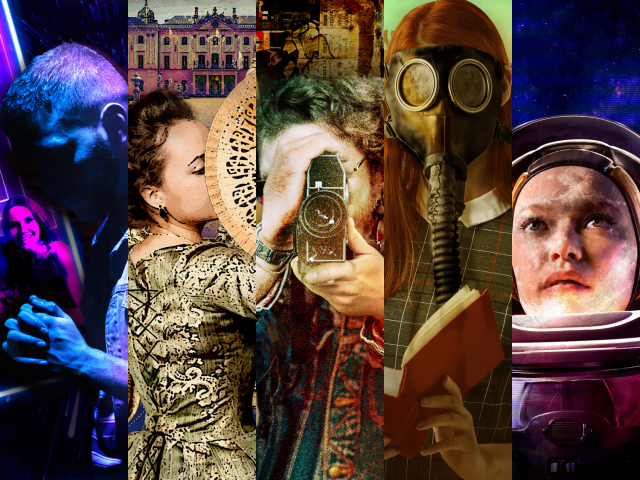Actors' Auditions
Tips for preparing an audition for the Department of Theatre's degree programs.

Actors' Auditions
What to Prepare: (An accompanist will not be provided.)
Two contrasting monologues of no more than 2 minutes each. Consider a comedy and a drama; or a classical (not necessarily Shakespeare unless you fully understand the selection and respond to it in a meaningful way) and a contemporary. Choose material that is age appropriate, appropriate to your experience and your type, which shows your strengths as an actor, and introduces us to your range and abilities.
Be realistic. Choose characters you might actually play. Be sure your material is well rehearsed. Monologues are best if they are taken from published plays. Original material or internet monologues are not recommended.
Consider whether or not you have chosen material that reflects good taste. Attempting to shock the auditors with profanity, vulgarity, or tastelessness is probably not the best way to go. A strong monologue should present a journey for the character. There should be an arc (a peak, a resolution, something about the character is different at the end than at the beginning.) You may also wish to google the list of currently “over-done” monologues and avoid them.
What to Wear:
Remember, the audition is like a job interview, so dress appropriately. A costume for the character(s) you are playing is not necessary. Instead, choose clothing that is flattering and neutral enough to serve both characters.
What to Say:
When you enter the room, remember that your appearance, your personality and your attitude will be the first impressions you establish. Say hello, find a spot in the center of the room or stage, a position where you are fairly certain you are in good light, and introduce the two pieces you will be presenting.
Be sure you are not too close to the table where those auditioning you are sitting. Then, when you are ready, begin. After the first piece, take a brief moment to transition to your second piece. If you are singing, be sure to have your accompaniment tape or your music ready.
Give yourself a moment to chat with the accompanist about anything he or she needs to know about where you are starting the song, ending it, your preferred tempo and any particulars that will help them to accompany you.
Where to Look:
Do not look directly into the eyes of those auditioning you. They need to be objective, and will likely be looking down from time to time, taking notes. Your focus should be directed to the other character(s) in the scene. To whom are you speaking? Place them (imaginary as they may be) in the room with you.
Be sure the evaluators can see you well. Placing others in a position that causes you to turn away or be visible only in profile may not be a good choice. The evaluators need to see what you are doing, but should not be a part of your scene.
Conclusion:
When you have completed your work, make eye contact with those auditioning you and say a polite thank you. There will be no feedback provided at the audition (unlike American Idol!) so do not expect any. You will then proceed to the interview portion of the audition. Be sure to include a resume. Make eye contact with those interviewing you.
Establish who you are as a person. Remember that we are looking to hire or admit you, the human being as well as the talent. If you are to spend several semesters with us, we want to assess whether Kean will be a good fit for you.